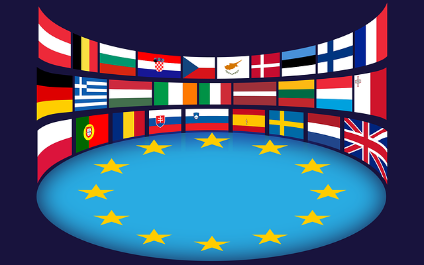현재 장바구니가 비어 있습니다!

[2024-08-06 Korea Economic News] Industry Ministry: The True Competitors in Global Trade Are the U.S. and Japan
Industrial Innovation in the Global Competition Era
In a recent address, Park Seong-taek, the First Vice Minister of the Ministry of Trade, Industry, and Energy (also known as the 산업부 in Korea), emphasized the urgent need for Korea to prepare for the fierce global competition landscape. He specifically pointed out that the industrial sector must be ready to face formidable rivals such as the United States’ Department of Commerce and Japan’s Ministry of Economy, Trade and Industry.
Key Focus: Global Competition
As Korea confronts the reality of global competition, the industrial policy landscape is changing rapidly. Park Seong-taek’s remarks underline the importance of understanding and mitigating risks in the current business environment. He mentioned that the industrial department should create a robust framework that not only supports local businesses but also enhances their competitiveness on an international scale. This includes understanding the dynamics of supply chain uncertainties that are increasingly prevalent in today’s global economy.
Strengthening the Industrial Department
The Ministry of Trade, Industry, and Energy is tasked with the crucial role of stabilizing Korea’s industrial ecosystem amidst increasing pressures from global competitors. Park emphasized that the ministry must actively engage in reducing the uncertainties surrounding the business environment. By fostering a stable and predictable environment, the industrial department can help companies focus on innovation and growth rather than being bogged down by external uncertainties.
Effective Inter-Ministerial Collaboration
One of the cornerstones of Park Seong-taek’s vision involves promoting collaboration between departments — referred to as “부처 간 협업”. He stressed that this inter-ministerial collaboration is essential for driving industrial ecosystem innovation. By aligning the goals and efforts of various government departments, Korea can ensure a more cohesive approach to addressing challenges faced by domestic industries, particularly in an era of increased supply chain volatility and trade tensions.
Addressing Supply Chain Uncertainties
The supply chain issues that many industries are wrestling with are not just a temporary setback; they are indicative of more profound shifts in global trade dynamics. Park’s remarks serve as a reminder of the critical need for Korean industries to re-evaluate and adapt their supply chain strategies. A well-coordinated industrial policy can turn these challenges into opportunities for businesses to innovate and improve their resilience against such uncertainties.
Commitment to Business Environment Clarity
In his speech, Park highlighted that a clear and stable business environment is paramount. With the uncertainties surrounding the global economy, having a firm commitment to clarity in regulations and policy direction can significantly empower companies. This clarity will allow businesses to plan effectively and direct resources towards innovation and competitiveness. The industrial sector must proactively develop strategies that not only address internal challenges but also counter external threats from international competitors.
Conclusion: A Call for Unity
In summary, Park Seong-taek’s address is more than just a call to action; it’s a framework for sustainable growth in the face of global competition. By minimizing uncertainties in the corporate environment, engaging in effective inter-ministerial collaboration, and addressing supply chain vulnerabilities, Korea can establish a strong position in the global market. The Ministry of Trade, Industry, and Energy is stepping up its game, ensuring that Korean industries are not just participants in the global economy, but leaders.
As we look forward to the future, it’s clear that the commitment to innovation and collaboration will pave the way for a brighter, more competitive industrial landscape in Korea. The message is unequivocally clear: in the face of global rivals like the United States and Japan, unity and strategic action are paramount.
For more information and updates on global competition and industrial policy, visit this link to explore many insights and resources.